Living In Singapore: Pros & Cons You Should Know
Singapore is often described as a city that works, and it totally deserves its reputation. This small island nation in Southeast Asia has built one...
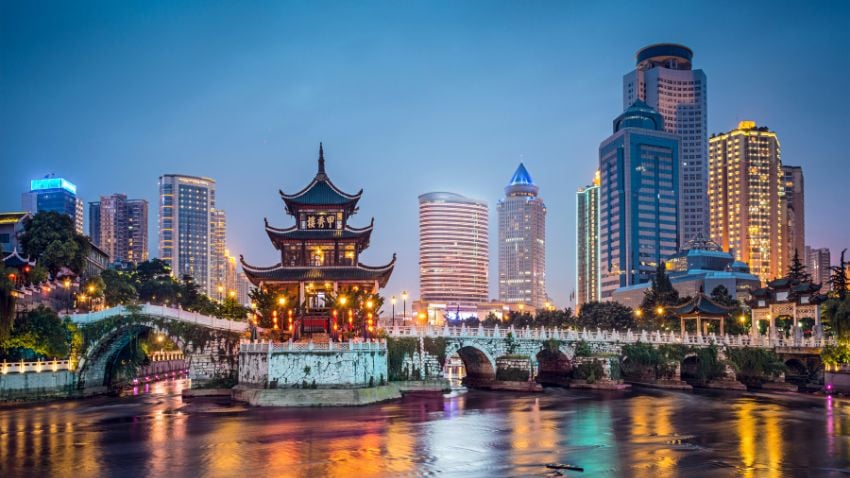
7 min read
China has increased its global influence significantly in the last few decades, and now it has massive power over multiple nations on every continent. Even though the US is still relevant in the global economy, China is working hard to surpass it. However, it is true that many countries still look up to the Western World.
Just by looking at the metropolis in Japan and South Korea, you will see that many American and foreign enterprises are operating there, and the locals might dress as Westerners too. The effects of globalization are tangible, and as much as every country has its culture and way of life, it is not hard to find commonalities.
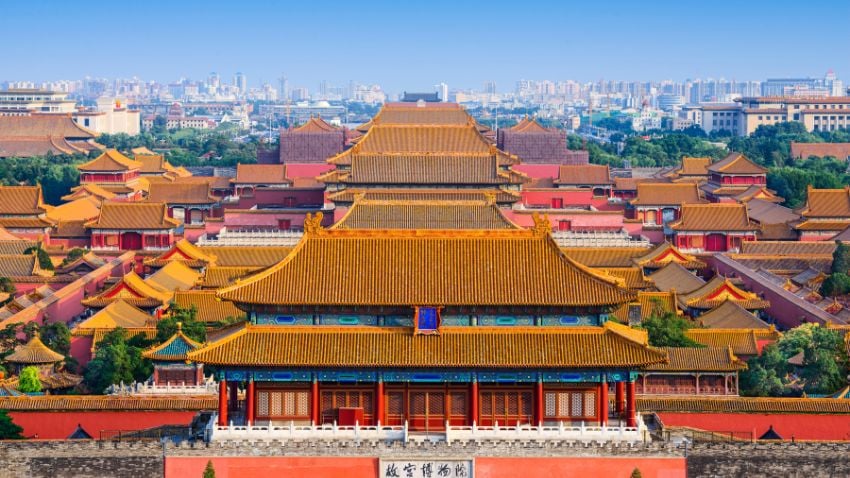
Forbidden City, Beijing, China
One of these commonalities is the number of products and services the Chinese provide to every country. In many Western nations, it is easy to see a Chinese restaurant or a store run by Chinese people almost everywhere. It is undeniable that many countries and regions depend on China, and one of the most noteworthy examples is Africa. Such is it that experts and scholars have even coined the term “Sino-African relations.” Africa has always been known for being a poor region, but the Chinese are trying to change it. The Institute of Developing Economies of Japan acknowledges that China is involved in infrastructure projects in 35 African countries.
Although China is devoted to many industries, the most important ones are power, dams, railways, roads, water, and sanitation. In other words, China is providing infrastructure. Moreover, the Chinese influence is also noticeable in Middle Eastern countries like Iraq. Whereas America and other Western nations tried to destroy this Arab nation, China is supporting it in its economic reconstruction, getting its industry back, and improving the lives of Iraqis.
Who would have thought that a communist state would learn from its mistakes and make its economy market-oriented? The world of today depends more on China than China depends on the world. On top of that, China is ruthless and can negotiate with multiple countries despite any racial or religious differences. This article will disclose some data and figures to support these bold statements, and you will fully know why China is an economic superpower.
Interesting article: The Basics Of How To Get A Second Passport Or A Second Residency
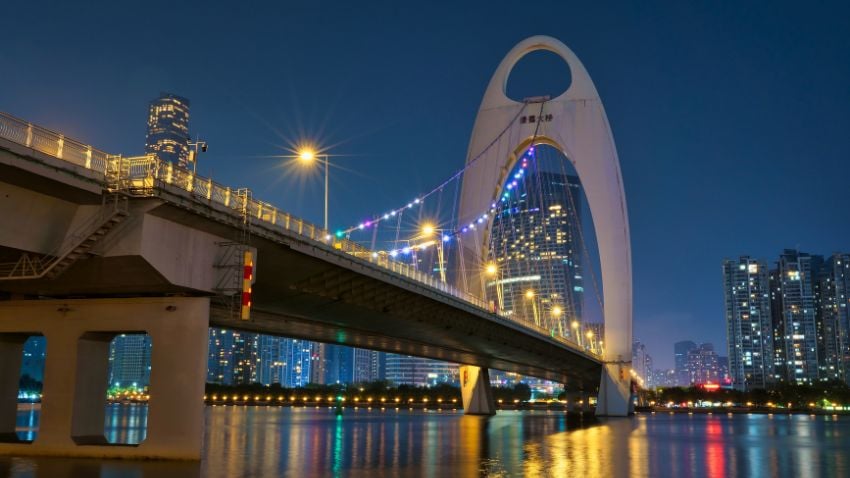
Liede Bridge Guangzhou, China
China will never cease to surprise us. As much as you can see some communist symbols in the Chinese Communist Party (CCP) Congress, and the Chinese consider Xi Jinping almost a deity, the economic approach of this Asian superpower is the complete opposite. If you still believe that every country is either socialist/communist or capitalist, you are simply not correct. The most important debate of today is oppression vs. freedom, and since 2020, this has been made even more evident. China has increased its economic power thanks to market-oriented reforms and openness, but it still is an oppressive regime.
The CCP controls the media and has in place a Social Credit System that forces every citizen to be careful with what they say and do. Given China’s increasing global influence, it is not difficult to see that many countries have tested this Social Credit on their territories. For example, Justin Trudeau has openly declared that he admires the Chinese regime, and what he has done in recent times is proof of that.
After the failure of Mao Zedong’s dictatorship, mainly because of the poverty and famine it caused, in December 1978, Deng Xiaoping became the leader of the reform of the Economic System that would take place in 1979. This committee concluded that the Maoist approach did not produce the expected economic growth and weakened China. In contrast, other Asian countries like Japan, Singapore, and Taiwan were getting stronger as industrialized nations. Due to Mao’s policies, the Chinese had to face difficulties like food shortages, rationed clothing, poor housing, and overall inefficiency in the service sector.
Even though Deng Xiaoping never tried to transition from communism to capitalism, the country implemented different market mechanisms paired with reduced government planning and direct control. This program attempted to transition from hardcore communism to a “socialist market economy,” which Vietnam has also imitated. Among other intelligent decisions, China opened Special Economic Zones and worked hard to attract foreign direct investment. Some of these zones include Shenzhen, Hong Kong, and Macau. Shenzhen is indeed the Silicon Valley of China with firms such as Huawei; Hong Kong is known for its low taxes and business-friendly environment; and Macau is the largest gambling spot on the planet, even more relevant than Las Vegas.
Agriculture stopped being the primary economic driver, and the country got more focused on the industrial sector. Whereas Green Energy and Climate Change are the new world religions, expensive and useless, China plays by another set of rules. Indeed, it is a very smart move. China has the largest carbon footprint, and thanks to ignoring the Paris Agreement, its economy is booming as opposed to other nations that are betting on the energy transition. However, China is a significant player in the Electric Vehicles (EV) industry and leads the sale of Electric Vehicles. Even Warren Buffet invested in the automaker BYD.
One of the central policies that explain the success of China during the end of the 20th century is the Chinese Foreign Equity Joint Ventures Law, which boosted international economic cooperation and attracted the desired foreign investment. This law changed trade policies, taxation, and banking. Consequently, it helped China experience a 9-percent annual growth rate between 1979 and 1990.
It is easy to realize that China is the world's largest exporter. Deng Xiaoping was indeed a turning point for The Awakening of The Red Dragon, and even though some scholars thought that it would not sustain its growth from 1990 onwards, they did. In fact, between 1990 and 2010, the annual growth rate was 10.4 %. The Chinese economy suffered from the global financial crisis of 2008, especially because its exports were severely impacted. China’s exports fell 17.5% in January 2009 and 25.7% in February 2009, compared to the corresponding months a year earlier. As much as it suffered, it was in a much better position than other OECD (Organisation for Economic Co-operation and Development) economies.
Related article: What Is The Panama Private Interest Foundation?
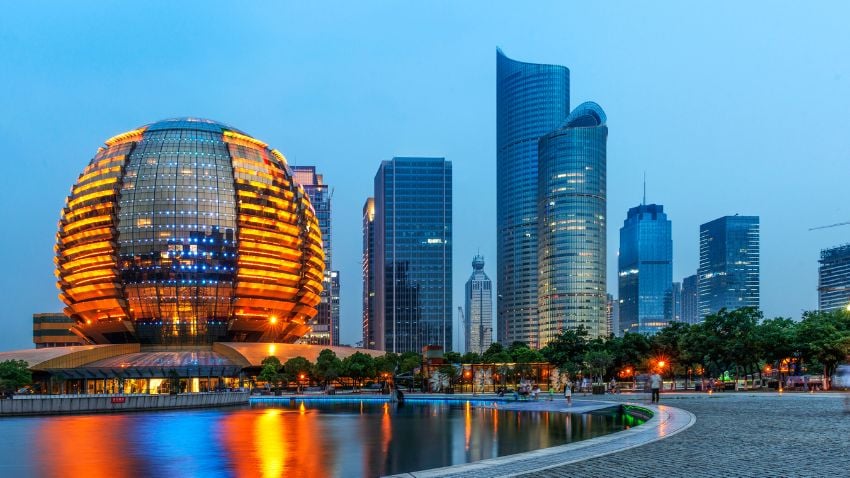
Hangzhou, China
All in all, the Chinese Economic Model looks successful. Despite being state-driven, it is market-oriented and has shaped the world's and international economic systems. It abandoned central planning as a communist state and is notably changing history. In 2010, China became the world’s first exporter, and in 2011, it surpassed Japan as the world’s second economy. That is indeed a huge milestone, but not as much as becoming the biggest country in terms of GDP to Purchasing Power Parity (PPP). This leads to another crucial insight, which is the currency.
Thanks to China’s PPP, the Chinese can get more value for the money they spend. The Chinese currency, the Yuan, is expected to become more valuable, whereas the US dollar has been on a decline, especially due to irresponsible Federal Reserve policies.
In 2021, America’s inflation rate was 7%, whereas in 2022, it was 7.1%. Regardless of the data, the truth is that the average American is having a hard time paying for essential goods and services, including groceries and housing. In contrast, China‘s inflation in 2022 has not even reached 4%.
Even though most oil transactions involve US dollars, which is a good stabilizer for the US currency, Saudi Arabia is planning to accept Yuan when selling crude oil to China. Riyadh has been very discontent with Washington lately, so it considers China as a good trading partner. In fact, Xi Jinping declared that China would keep importing oil from Gulf Arab countries.
Let’s look at some more figures to make the picture clearer. China has been experiencing a trade surplus in the last few years to the point of becoming the world's largest exporter and the world’s second-largest importer. Plus, here is a comprehensive chart that showcases the world economy in 2021. The US GDP was $22.9 trillion, representing almost 25% of the world’s GDP. Then, China’s GDP was $16.9 trillion, which means roughly 18% of the global GDP. The US, China, Japan, and Germany made up over half of the world’s GDP.
To wrap up this section, it is worth noting that China’s main trade partners include the US, Japan, South Korea, Vietnam, Australia, and Germany. However, in October 2020, China made a bold move that can change the economic landscape even more. It signed the Regional Comprehensive Economic Partnership (RCEP) with 14 other Indo-Pacific countries. As a result, it will involve 2.3 billion people and roughly 30% of the global economy.
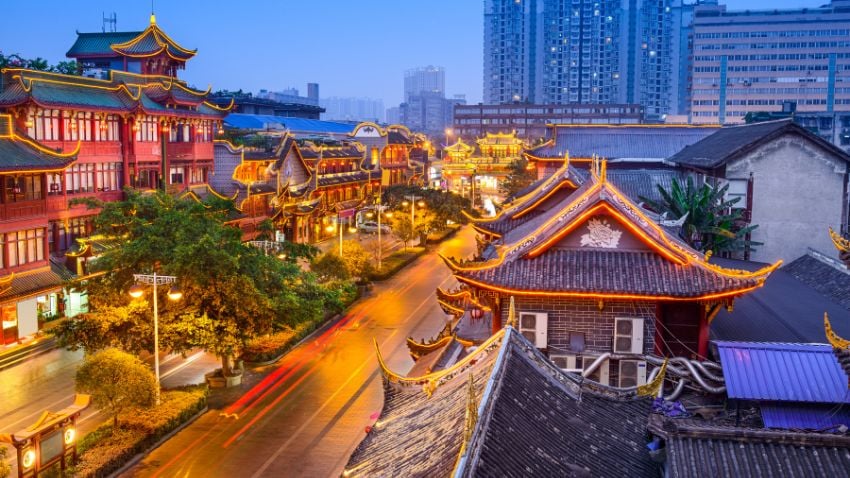
Historic District, Chengdu, China
In his efforts to make America great again, Donald Trump imposed multiple tariffs on Chinese products to stop outsourcing labour to the Asian giant. It is well-known that China, as well as South East Asia, is the world’s factory. Trump intended to reduce the purchase of Chinese products to favour the US domestic industry.
Indeed, US imports of certain Chinese products, semiconductors, IT hardware, consumer electronics, clothing, footwear, and furniture, dropped drastically. However, some electronics, such as laptops and monitors, increased during the lockdown in America. Remember that in 2020, China was the only country with a positive GDP growth of 1.2%.
What did other countries do in response to the trade war? Let us see a few examples. Samsung closed its last mobile phone plant in China and moved to Vietnam. Nintendo moved its Switch assembly from China to Vietnam. As for American enterprises, Apple moved its iPhone assembly from China to India. And Xbox consoles are now being shipped from Vietnam in addition to China.
Some stock markets were negatively affected by this duel of giants. For example, the daily Nikkei 225 Index of Japan suffered huge losses on May 5, 2019, when Trump announced that the US would increase tariffs on $200 billion USD of Chinese goods from 10% to 25%. Nowadays, it is doing much better. European stocks were no different during the trade war paired with Brexit.
Related content: Cayman Islands Foundation Companies
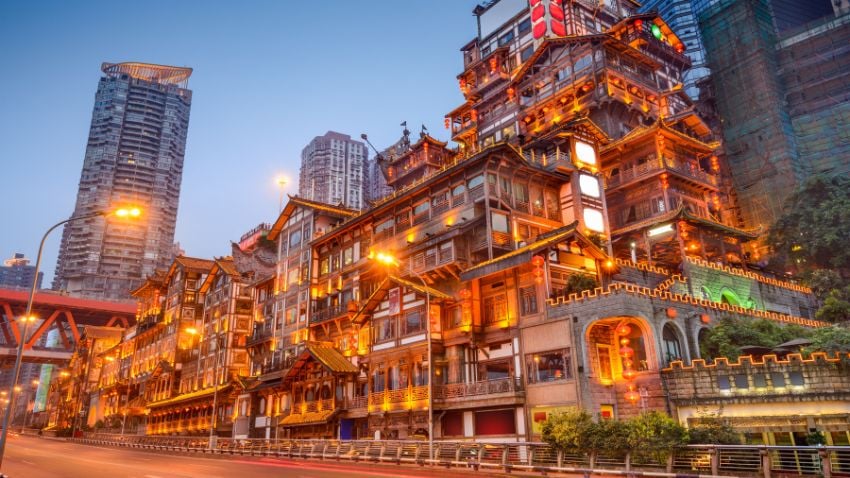
Chongqing, China
China’s conquest is far from over. Its global influence is likely to grow steadily thanks to its massive Belt and Road Initiative. The updated version of the Marco Polo Silk Road is already benefiting China. Not only is China taking over South East Asia, Africa, Latin America and Europe, but also Central Asia. In the past, Central Asia was indeed the nexus between the Eastern and Western markets and cultures. However, this region, although rich in raw materials and natural resources, is heavily isolated and reliant on Russia.
Xi Jinping's plans include developing a vast infrastructure of railways, energy pipelines and highways, among other projects. As a result, the Yuan would get even more valuable given its international usage. All in all, the Chinese regime is getting more powerful each day. It is still, for sure, an authoritarian regime with expansionist views. Indeed, despite its violation of human rights and surveillance state, China’s growth seems inevitable.
As libertarians, we can’t sit and applaud the government's disregard for personal freedom, but from the point of view of economists, it is wise to recognize the power China has gained in geopolitics and economics. China has achieved much and has left room for many countries to learn from its economic diplomacy. Many countries around the globe will often let woke ideology take the driver's seat and refuse to negotiate with countries because of cultural differences or their laws. The fact that China ignores the particularities of other countries to increase its economic power will be the ultimate reason it will eventually own the global financial market.
If you want the best intel from the expat world, including profitable offshore opportunities, little-known tax-saving strategies, and hard-won insights on immigration, passports, and Plan-B residencies, all delivered to your inbox every single week, then join our daily correspondence, EMS Pulse®. Currently enjoyed by over 84,000 expats and expat-hopefuls worldwide. Fill in the form below to join our newsletter free:

Written by Mikkel Thorup
Mikkel Thorup is the world’s most sought-after expat consultant. He focuses on helping high-net-worth private clients to legally mitigate tax liabilities, obtain a second residency and citizenship, and assemble a portfolio of foreign investments including international real estate, timber plantations, agricultural land and other hard-money tangible assets. Mikkel is the Founder and CEO at Expat Money®, a private consulting firm started in 2017. He hosts the popular weekly podcast, the Expat Money Show, and wrote the definitive #1-Best Selling book Expat Secrets - How To Pay Zero Taxes, Live Overseas And Make Giant Piles Of Money, and his second book: Expats Guide On Moving To Mexico.
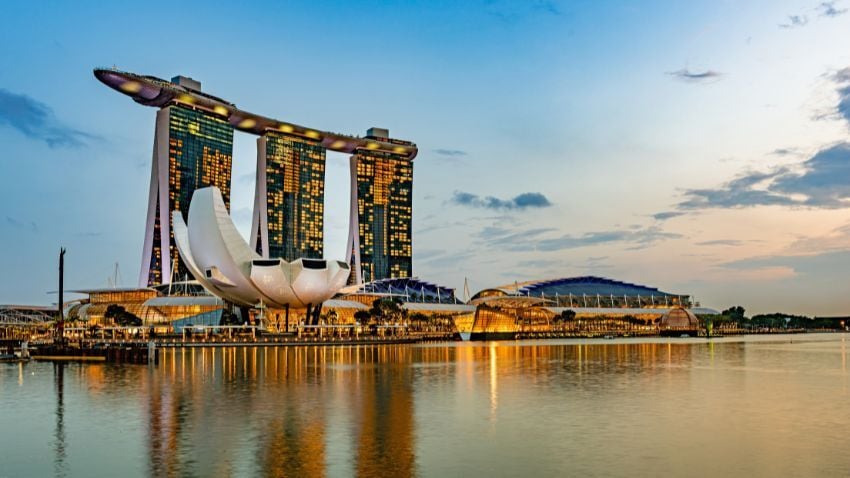
Singapore is often described as a city that works, and it totally deserves its reputation. This small island nation in Southeast Asia has built one...

Panama’s geographic size is modest, but its global relevance is not. The country connects two oceans and two continents, operates on a dollarized...

Honduras’ newly elected president, Nasry Asfura of the conservative National Party, was sworn in on January 27, 2026. The election, held on November...